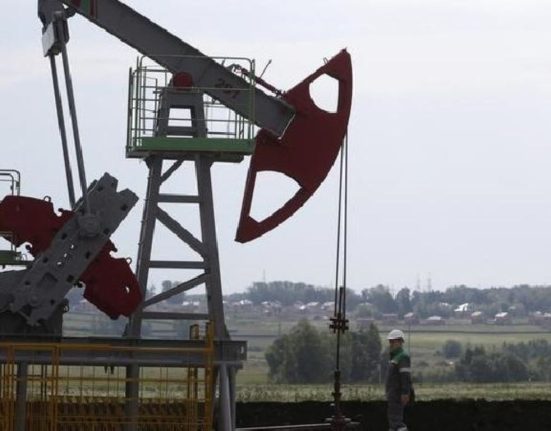In a decisive upward surge, oil prices soared nearly 2% on Friday, recording a remarkable fourth consecutive weekly gain. The rally was fueled by mounting evidence of supply shortages in the months ahead, coupled with escalating tensions between Russia and Ukraine, creating a perfect storm of uncertainty in global energy markets.
Brent crude futures rose by an impressive $1.43, equivalent to 1.8%, settling at $81.07 per barrel, concluding the week with a gain of approximately 1.2%. Simultaneously, U.S. West Texas Intermediate crude closed $1.42 higher, or 1.9%, at $77.07 a barrel, marking its highest point since April 25. WTI experienced a weekly gain of nearly 2%, further affirming the upward trend.
Analysts and experts have been closely observing the energy market, and the consensus appears to be that a potential supply crunch is looming. The slow but steady rise in oil prices is believed to be an indication of this impending crisis, with global supplies gradually tightening. Moreover, there are concerns that this tightening could escalate rapidly in the coming weeks, leading to further price spikes.
Commenting on the situation, Phil Flynn, an analyst from Price Futures Group, highlighted the impact of geopolitical tensions on the energy landscape. The brewing conflict between Russia and Ukraine has raised apprehensions about potential disruptions in oil supplies, adding to the market’s volatility. Russia’s actions, including targeting Ukrainian food export facilities and seizing ships in the Black Sea, have heightened tensions in the region, amplifying the risks to energy trade.
The potential ramifications of a shutdown of the grain corridor are far-reaching. Ethanol and biofuels, blended with oil products, could face supply constraints during a time when global grain markets are already tightening. Such a scenario would likely lead to an increased reliance on crude oil by refiners, adding more pressure to the already strained oil supplies.
Beyond the immediate impact on energy exports, the seizure of ships by Russia also raises risks for other goods being transported in the region, potentially affecting global trade flows.
Adding to the supply tightness concerns is the recent reduction in U.S. oil rigs. Energy services firm Baker Hughes reported that U.S. energy firms decreased the number of oil rigs by seven, marking the most significant cut since early June. This reduction brought the U.S. oil rig count to its lowest level since March 2022, further hinting at potential supply constraints in the near future.
Meanwhile, the Energy Information Administration (EIA) revealed that crude inventories in the U.S. fell last week. The decline was attributed to an increase in crude exports and higher refinery utilization, further supporting the narrative of tightening supplies.
Amidst these developments, UAE Energy Minister Suhail al-Mazrouei expressed confidence in the actions taken by OPEC+ to stabilize the oil market, stating that they were adequate for the time being. The energy alliance remained ready to act swiftly if any additional measures were required.
In response to economic concerns, Chinese authorities unveiled plans to boost sales of automobiles and electronics, a move widely welcomed by investors hoping to reinvigorate the country’s sluggish economy. The ripple effects of these measures on the global energy market remain to be seen.
Looking ahead, investors eagerly anticipate preliminary purchasing manager surveys from S&P Global, which are expected to shed light on changing global demand patterns. The results of these surveys will play a pivotal role in shaping investment strategies and market sentiment.
In conclusion, the oil industry is witnessing a volatile period marked by supply shortage concerns and escalating geopolitical tensions. The fourth consecutive weekly gain in oil prices underscores the growing apprehensions about the market’s stability and underscores the need for measured and strategic actions to safeguard energy supplies. As global markets brace for potential disruptions, industry stakeholders and investors alike remain vigilant, closely monitoring developments and seeking opportunities in a complex and rapidly changing landscape.










